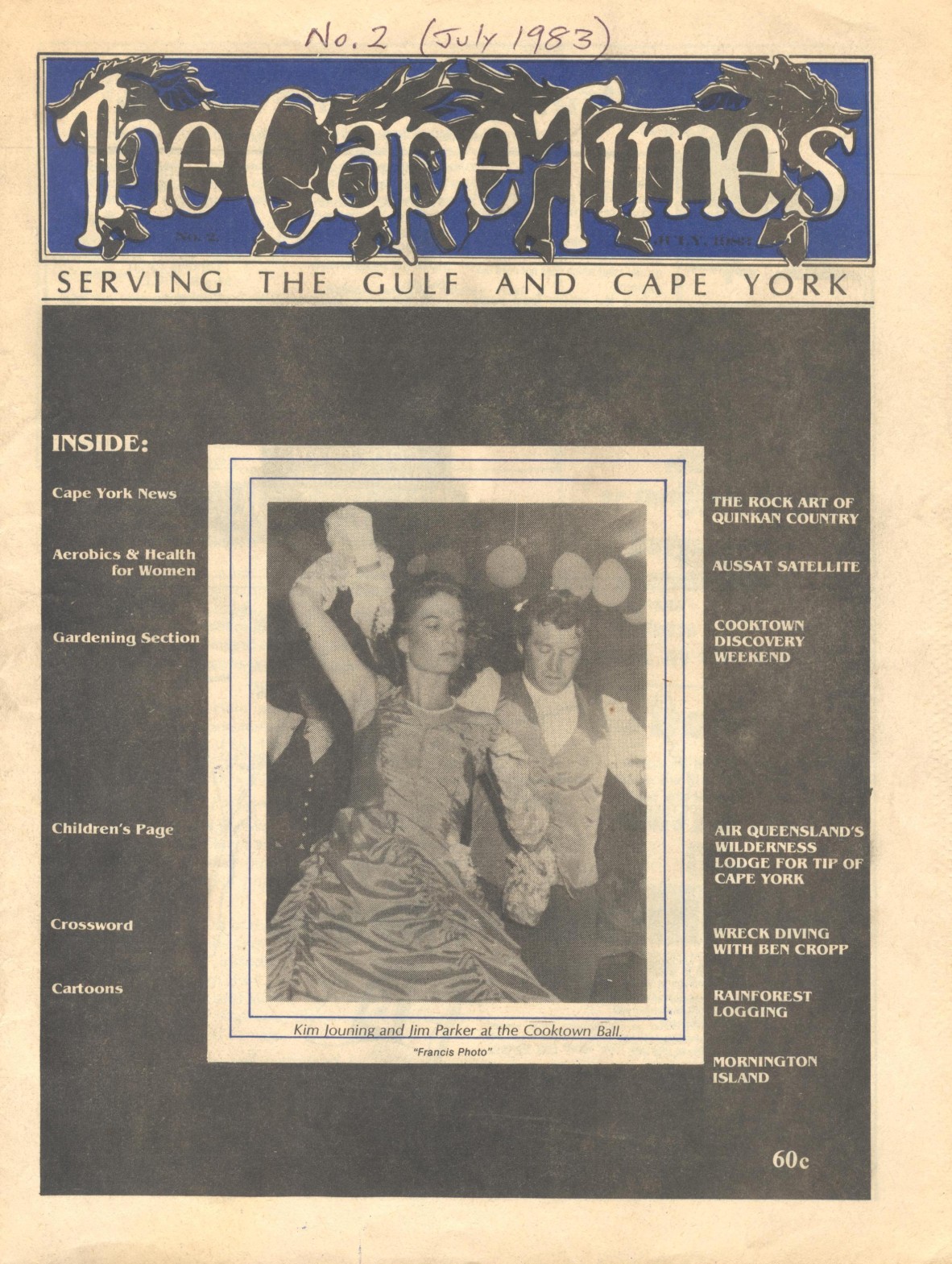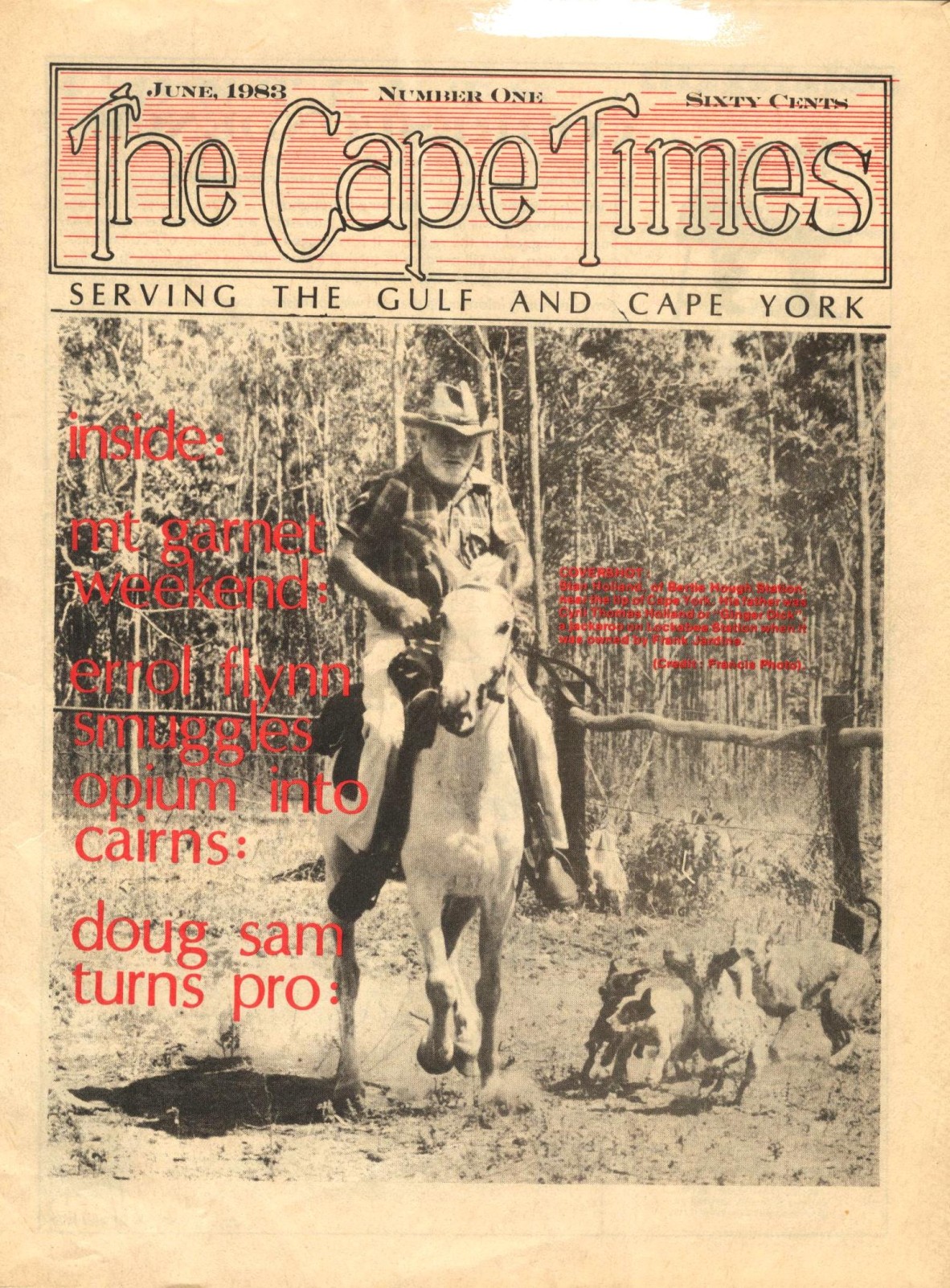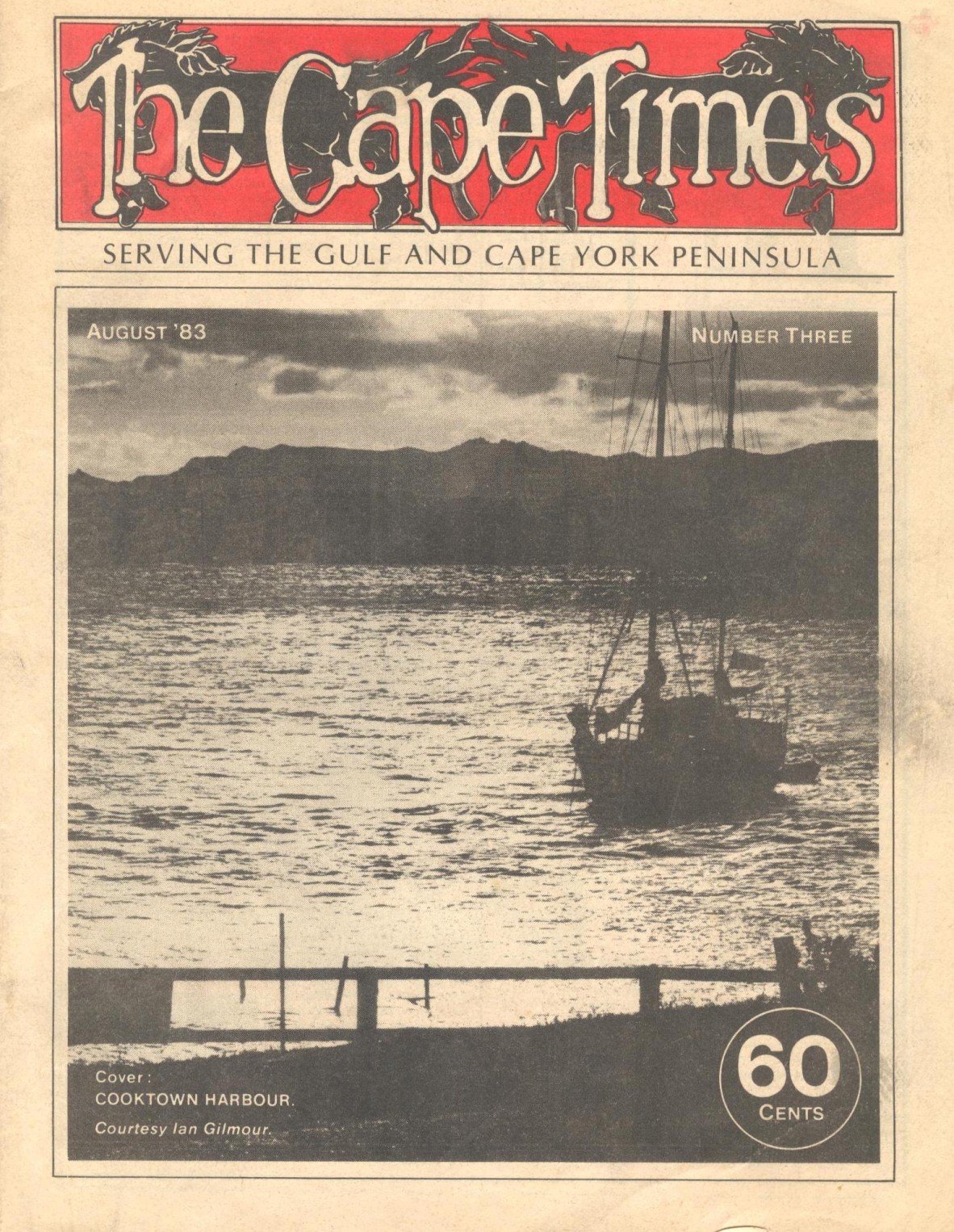A newsworthy acquisition: the Cape Times
By Libby Fielding, Librarian, State Library of Queensland | 7 February 2013
Earlier this month the John Oxley Library was pleased to accept a somewhat unusual donation. The donation was out of the ordinary - and particularly appreciated - not just because it consisted of a small run of a Queensland newspaper not already held by the State Library but because of this title’s geographical coverage.

The Cape Times, a largely forgotten monthly newspaper based in Cairns and published only between 1983 and, it appears, 1985, had a singular point of distinction: it was, as it declared in a number of its issues, “the only publication that circulate throughout the entire Gulf of Carpentaria, Cape York Peninsula and Torres Strait Islands”. Delivered to its readers courtesy of Cape York Air Services and Air Queensland, its brief was to serve the Gulf and Cape York Peninsula and to publish for “all of the major communities - European, Aboriginal, Torres Strait Islanders - as well as the stations and homesteads” within the area of its reach. Begun on a “shoe-string budget” by a husband and wife team and initially offering free local advertising space, it was able to boast by mid 1984 that its print run had been increased to 7,000 issues.
The Library’s recently acquired holdings consist of nine issues published in 1983 and 1984 - and to our knowledge the only other institution in possession of the Cape Times - in this instance a single issue - is the National Library of Australia. As a library acquisition the paper’s particular value is that, leaving aside the Torres News (which is distributed across the inhabited islands of the Torres Strait and the five communities of the Northern Peninsula area) and The Western Cape Bulletin (whose distribution covers the mining and indigenous communities of Western Cape York Peninsula), there is very limited newspaper coverage of the vast Cape area beyond Cooktown.

The other significant point of interest is the period in which this rather idiosyncratic publication briefly reflected the social, political and commercial environment of its times. The paper began its life in the year the coalition between the state Liberal and National Parties was dissolved, when a subsequent election resulted in a sixth consecutive term for the Bjelke-Peterson led National Party and soon afterwards, a majority National Party government. It was the same year Bob Hawke defeated the incumbent federal Coalition Government led by Malcolm Fraser. It was also the year a historic attempt by environmental activists to blockade the Daintree Rainforest to prevent the construction of a road through the forest wilderness was intercepted by the Queensland Police.
The Cape Times is an eclectic mix of local humour (some amateur poetry, cartoons, tall tales, stories about larger than life “characters” like Wild Bill Toohey and Batavia Bill), accounts of life in the Gulf and Cape York (pearling, fishing, “wreck diving”, the School of the Air, the banana prawn industry, the experience of a “Gulf cop”), historical snapshots (the Aboriginal shellmounds near Weipa, the arrival of the first Christian missionaries in the Torres Strait in 1871, the building of the Normanton-Croydon railway) and articles which reflect topical issues of the day (the legacy of established hippie communities, the options for achieving economic independence in the Gulf and Peninsula, the case for and against rainforest logging).
Among other pieces which define this paper as being quintessentially about its physical territory are articles on the quarantine extension in the Cape York area, the pilots of the Torres Strait Islands, the Croydon rodeo, Cedar Bay Bill (and his now legendary association with a hippie commune in the seventies), Aboriginal activist Mick Miller, a diary of (and purportedly found on) a “dope patch” north of Cairns, the lost gold reefs of Cape York, an interview with the Pandora Reef’s drivemaster - and an account of the associated recovery operation - and histories of the Cape Tribulation protest blockade and the Hopevale Lutheran Mission at Cooktown.
Offsetting advertisements for commercial enterprises such as shipping transport in the Gulf and Cape, custom built homes, waterbeds, real estate, Cape York safaris and ultralight planes designed for mustering cattle - there is a tilt, on some of the Cape Times’s pages, toward the notion of self sufficiency, alternative lifestyles and an environmental awareness which reflects the surviving optimism of the early eighties. You could pick up advice, for instance, on the growing of leguminous species or fruit trees on the Cape or about alternative health remedies, aerobics eighties style or Cape York specific gardening hints. There is also an instructive piece by bush tucker man, Captain Les Hiddons on the subject of survival skills in the wilds of Cape York.
The particular blend of local wisdom, humour and history which characterises this slightly eccentric newspaper spring from a time which, tantalisingly, is just out of the reach of library based online sources. This is because traditional commercial database products do not typically capture newspaper content - and certainly not regional news content - this far back. And because of copyright limitations, the digitised material available from the excellent national newspaper source, Trove, ceases to exist after the mid 1950s.

For this reason the donation of several issues of an obscure and interesting news publication from the early eighties amounts to a significant addition to the State Library’s extensive Queensland newspaper holdings. And it goes without saying that, were you to happen, at the point of ripping up the kitchen lino, upon a missing issue of the Cape Times, then the State Library would be very happy to hear from you.
While we’re on the subject of elusive newspapers, the same might be said of a sizable number of Queensland newspaper titles which are included on the Queensland Missing Newspapers list. As is evident from a reading of these issues of the Cape Times, the undeniable research value of newspapers is that – through the combination of their opinion pieces, reporting of contemporary events, personal stories, their design and even their advertisements – they enrich our understanding of the time and place which gave rise to their publication.
Libby Fielding - Published Materials, State Library of Queensland
Comments
Your email address will not be published.
We welcome relevant, respectful comments.